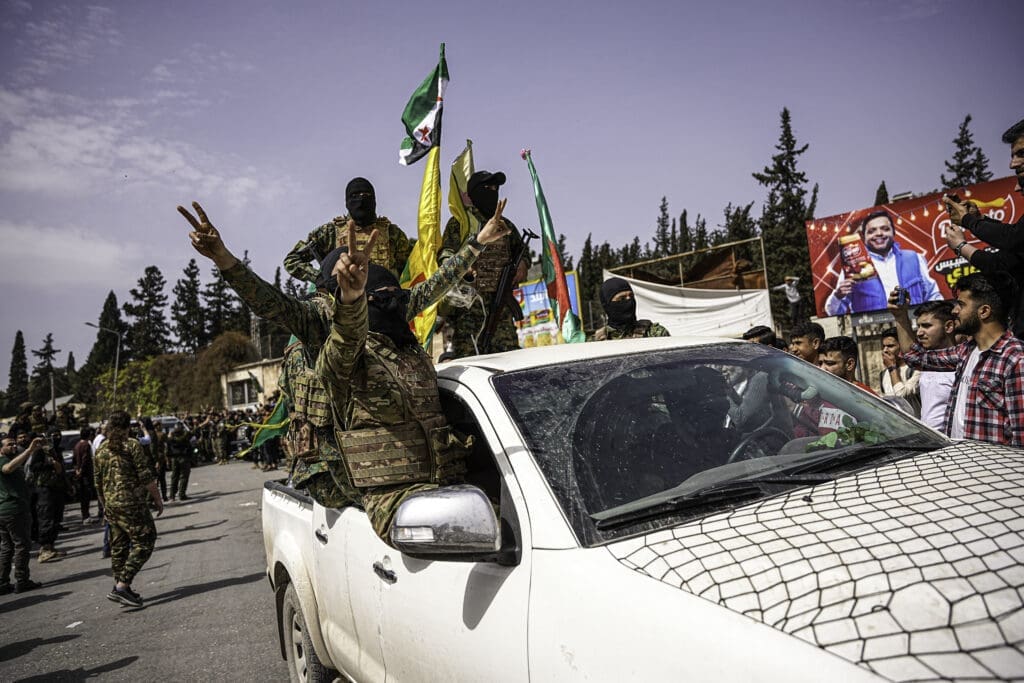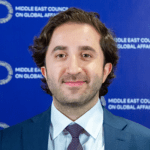As the Trump administration begins pulling U.S. troops out of Syria and openly mulling its long-term future there, the Syrian Democratic Forces (SDF)—a Kurdish-led coalition force—may soon lose its most important military and political backer. This possibility, and the wider geopolitical shifts it could bring, was likely a major factor in SDF General Commander Mazloum Abdi’s decision to sign an agreement in March with caretaker Syrian President Ahmed al-Sharaa that lays the groundwork for a new power-sharing arrangement for the country.
Backed by the U.S. and welcomed by Türkiye, the deal could help keep the nation from descending into yet another round of destructive proxy war. For Washington and other powers active in the region, it also represents an opportunity to test Sharaa’s commitment to peace and power-sharing with the Kurds and his other rivals. For Ankara, it offers a chance to test the SDF’s commitment to becoming a partner in post-Assad Syria, particularly as Türkiye ponders reviving the peace process with the outlawed Kurdistan Workers’ Party (PKK).
The agreement followed a surge of sectarian violence in Syria’s Alawite-majority coastal region, where forces linked to Sharaa’s Hayat Tahrir al-Sham (HTS) massacred civilians from non-Sunni Muslim communities, undermining Sharaa’s claims to promote national unity. With his legitimacy waning, aligning with the Kurdish-led SDF allows Sharaa to reposition himself as a bridge-builder across Syria’s ethnic and sectarian divides.
But while the symbolism of the accord is strong, its practical durability is fragile. The deal is already under strain because the administration’s proposed interim constitution has been rejected by Kurdish factions, including the SDF, who view it as an attempt to formalize a new brand of Arab authoritarianism that sidelines the Kurds and their quest for autonomy.
The SDF, while pragmatically engaging with Sharaa, still enjoys U.S. military and political backing, and controls nearly a third of Syrian territory in the country’s northeast. By contrast, Sharaa’s government has failed to consolidate control over rebel-held areas in the south or manage growing unrest in the Alawite heartlands, where a nascent insurgency appears to be taking shape—possibly with support from Iran, Hezbollah and Iraq’s Popular Mobilization Forces (PMF).
This combustible environment mirrors the early stages of the regionalized conflict that consumed Iraq after 2003. Syria, too, risks becoming a battlefield for overlapping proxy agendas, yet again, unless domestic and international actors recognize the urgency of stabilizing the situation and move quickly to address it. Iraq offers both a cautionary tale and a partial blueprint for what could unfold in Syria. Its fate was determined in the early days following the 2003 U.S.-led invasion. A combination of deep-rooted domestic sectarian tensions and heightened geopolitical competition paved the way for at least two civil wars and the deaths of hundreds of thousands of Iraqis over the course of a decade. This period included the emergence of the Islamic State group (ISIS) and its creation of a proto-state in northern Iraq.
Syria can ill afford to endure the same arduous journey before it finds some reprieve from conflict. Moreover, as in the case of Iraq, its domestic political landscape and the central government’s ability to manage political rivalries will determine the extent to which geopolitics will shape Syria’s immediate future. The new power-sharing agreement shows that for all the talk about factionalism, sectarian divisions and confrontations, politics and power do not constitute a zero-sum game, and there are openings for co-operation and mutual gain.
With support from international actors, Syria needs to reconstruct a national consensus and a framework capable of addressing issues of shared responsibility and decision-making. This would go some way towards achieving a grand bargain between Syria’s factions and communities that could in turn prevent the emergence of competing political orders. Without this, external actors could be emboldened to exploit divisions to pursue their own geopolitical interests, often with detrimental consequences for the local population.
Policymakers in Syria and internationally should pay greater attention to communal dynamics and drivers in Syria, strengthening the hand of actors that can influence public policy from the bottom up and hold decision-makers to account. In the meantime, a decentralized Syria—one that affords greater powers to communities that see the government in Damascus as sectarian, and that feel marginalized and disenfranchised—could create sufficient breathing room for state and society to undergo a process of reconciliation. Instead of calling for the restoration of Damascus’ rule over SDF-held areas, espousing centralization and insisting on the Arab identity of the Syrian state—as the proposed interim constitution does—both Damascus and external actors should engage with Syria’s existing self-governing arrangements. Recognizing the country’s inclusivity as a strength rather than a weakness will be crucial to achieve sustainable peace and governance.
While reconciliation is generally seen as a key pillar of post-conflict transitions, it can also be weaponized to subjugate minorities or weaker rivals, as the Assad regime did. The caretaker government should ensure that reconstruction and peacebuilding initiatives are not used as coercive tools to assert the state’s dominance, or for predation, extortion, punishment and cooptation. The Assad regime made a mockery of international assistance, diverting funds to projects that reinforced its standing rather than to the communities most in need of humanitarian aid and reconstruction. The interim administration, therefore, has an opportunity to allay international concerns and secure its own credibility as a viable and representative government. Sharaa should build coalitions beyond his narrow base and cede meaningful power and autonomy to groups like the SDF if there is to be any hope of sustainable peace. The clock is ticking.


